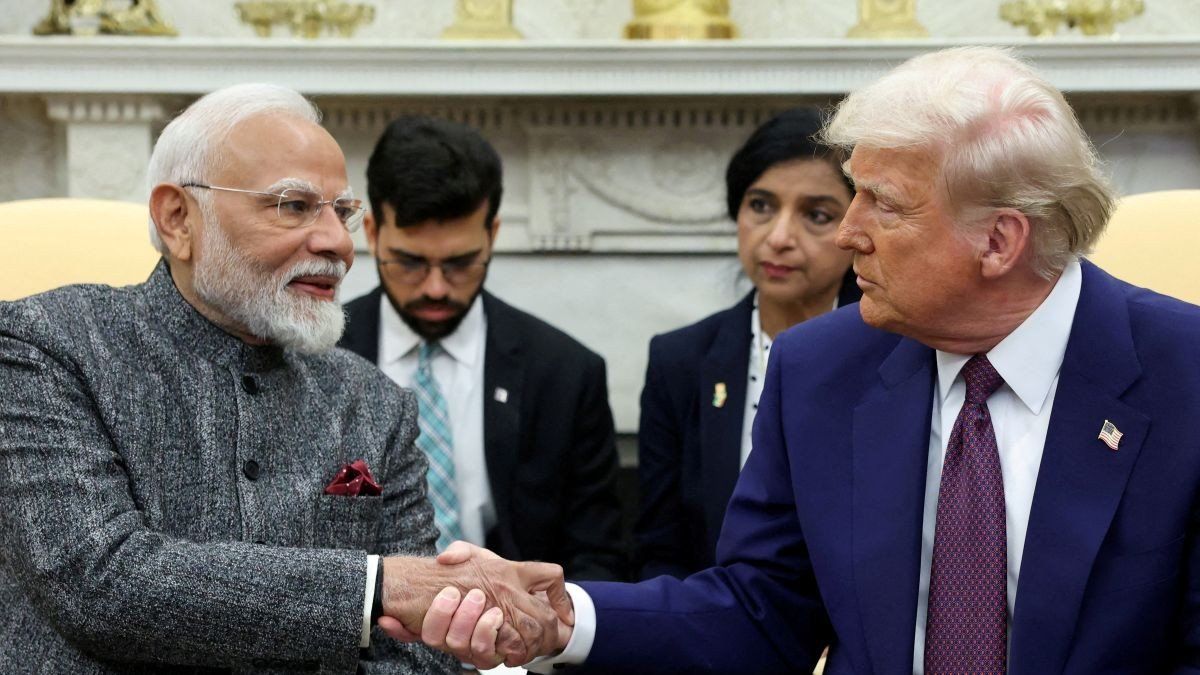July 30, 2025
With friends like these! President Donald Trump on Wednesday announced a new 25% tariff on India, one of the US’s closest allies in Asia.
Although India is a “friend”, Trump said, the country’s notoriously high trade barriers had prevented more commerce with the US. The new measures will go into effect on Saturday.
The move comes smack in the middle of rocky, ongoing trade talks between the US and India. Trump wants to crack open India’s vast market for American firms, while India is keen to protect certain domestic industries – particularly pharmaceuticals, auto parts, and agriculture – as well as the access of Indian students and high-skilled workers to the US.
India is in a tough spot – as Trump carries on talks with various countries at once, PM Narendra Modi doesn’t want to get stuck with a higher US tariff rate than other export-oriented Asian competitors who are all jockeying for access to the massive US market.
But Trump has put Modi in another, even trickier bind. He said India will pay a “fine” for its purchase of Russian oil. While details have yet to emerge, this looks like the first instance of Trump using so-called “secondary sanctions” to pressure Vladimir Putin, who has serially ignored Trump’s ongoing demands to end the war in Ukraine.
Earlier this month Trump threatened a tariff of 100% on any countries that trade with Russia unless the Kremlin stops the war within 50 days. This week he cut the deadline to “10 or 12 days.”
India is one of those countries, big league. Delhi purchases roughly 2 million barrels of oil daily from Russia, accounting for 40% of India’s total oil imports. That amount reflects a huge boost in Russian imports after 2022, when European sanctions over the invasion of Ukraine made Russian crude way cheaper for non-European buyers.
Analysts say that India could certainly go back to its traditional suppliers in the Middle East and Africa, but it would have to accept significantly higher costs compared to the blackballed Russian crude it’s gotten used to.
The dragon in the room. Still, if Trump is serious about landing a blow on Russia’s oil-dependent economy, he’ll sooner or later have to look towards the other
billion-person Asian power that gulps down Kremlin crude. China imports more than 2 million barrels of the stuff a day, about a fifth of its total imports. Together with India, the two countries buy more than 80% of Russia’s oil exports, accounting for about 5% of overall global crude demand.
Beijing is also Russia’s largest trade partner overall. With the US locked in tricky trade talks with its biggest global rival, is Trump ready to swing the secondary sanctions hammer at Beijing too?
More For You
What We’re Watching: US critical minerals summit, Rafah crossing reopens, Border violence in Pakistan
Feb 02, 2026
U.S. President Donald Trump and Japanese Prime Minister Sanae Takaichi hold up signed documents regarding securing the supply of critical minerals and rare earths, at a bilateral meeting at Akasaka Palace in Tokyo, Japan, October 28, 2025.
REUTERS/Evelyn Hockstein
Representatives from the European Union, United Kingdom, Japan, and others will meet in Washington this week to discuss a strategic alliance on critical minerals.
Most Popular
A flood victim stands at her flooded home after weeks of heavy rainfall in Boane District, Maputo, Mozambique, January 19, 2026.
REUTERS/Amilton Neves/File Photo
392,000: The estimated number of people displaced across Mozambique by recent rain-induced floods. Severe flooding in the southern African nation, as well as in South Africa and Zimbabwe, has killed over 100 people.
Costa Rica presidential candidate Laura Fernandez of the Sovereign People's Party (PPSO) addresses supporters during her closing campaign rally, ahead of the February 1 general election, in Heredia, Costa Rica, January 29, 2026.
REUTERS/Mayela Lopez
In yet another Latin American election shaped by concerns about security and violence, Costa Ricans will vote for president this Sunday.
© 2025 GZERO Media. All Rights Reserved | A Eurasia Group media company.
